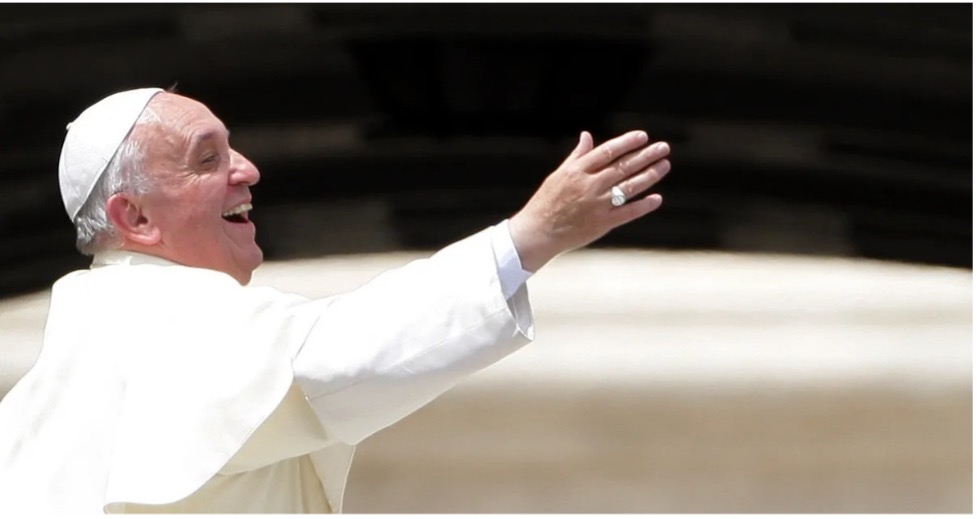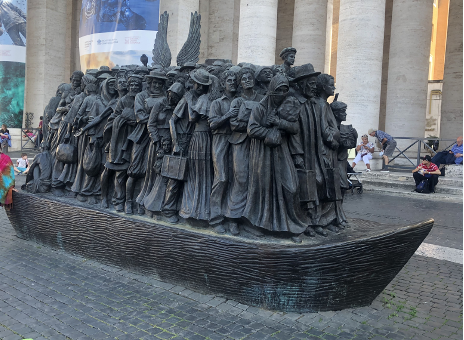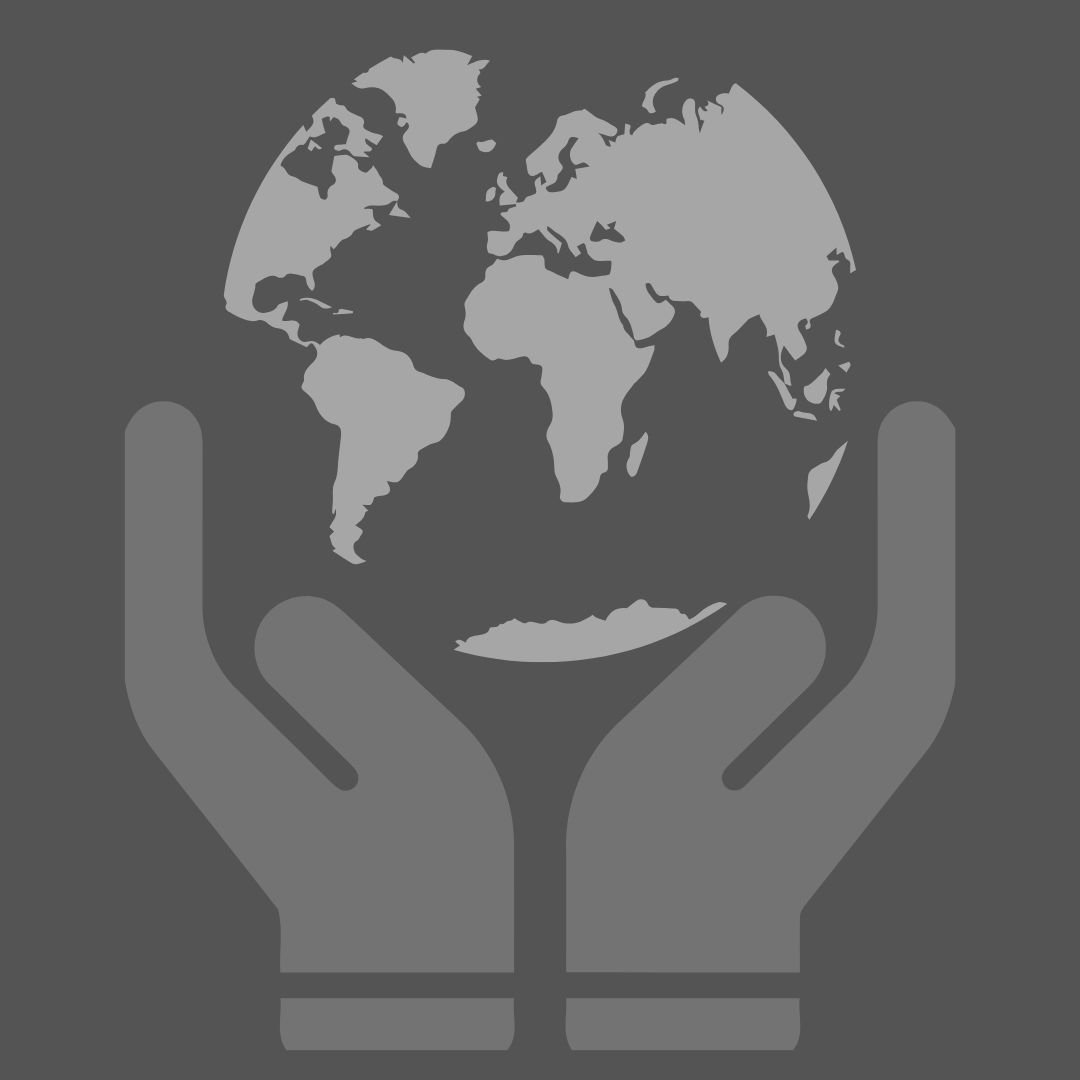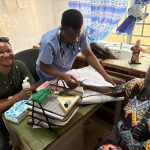
We have a new Pope to guide the 1.1 billion Catholics across the world. Pope Leo XIV, formerly Cardinal Robert Prevost, has made it clear that, as he succeeds Pope Francis, he is aligned with his direction. And, by taking the name Leo, he is embracing the work of Leo XIII who focused over 100 years ago on workers’ rights and social justice.
Francis, through his papacy, led on his concern for the poor, migrants, and refugees. He promoted inter-religious dialogue and believed that the Catholic Church should be more inclusive to people of different sexual orientations. He made women full members of the various ministries (dicasteries) in the Vatican and worked for openness, transparency and inclusivity across the church.
On his election as Pope Leo XIV, Robert Prevost immediately made clear his commitment to continue in the path of Francis. He said: “We must seek together how to be a missionary Church, a Church that builds bridges and dialogue, always open to receive people, like this square, with open arms – everyone, all those who need our charity, our presence, dialogue and love…. we want to be a synodal Church, a Church that walks, a Church that always seeks peace, that always seeks charity, that always seeks to be close especially to those who suffer.”
The more extreme quarters of social media reacted strongly, burning with anger and hatred, referring to Leo as ‘the woke Pope’. Clearly ‘building bridges’ is not on their agenda. Many of them seem to elevate President Trump to some kind of God-like status; and his agenda is to build walls, exercise coercion and gain self-interest. The fact that Cardinal Prevost had publicly disagreed with Vice President Vance, who is reported to be a devout Catholic, was clearly a factor contributing to the noise and bile.
The Social Impact Files (formerly The Aid Files) wrote about Walls in March 2024, reflecting on the conflicts on either side that lead to their construction. It posed the questions: “Are they to keep people out or keep people in, or both and why they are needed?” This article draws on some of that work in the context of an heightened urgency to address the world’s predicament.
There is a catalogue of walls across the world as follows: Mexico and Texas, The West Bank and Palestine, the DMZ between North and South Korea, Hong Kong; South Africa and Mozambique; Egypt; Kuwait and Iraq; Spain; Uzbekistan and Kyrgyzstan; Turkmenistan and Uzbekistan; Uzbekistan and Afghanistan; Botswana and Zimbabwe; India with Pakistan and Bangladesh; Saudi Arabia and Yemen, Brunei and Limbang, Kazakhstan and Uzbekistan, Bulgaria, Saudia Arabia and Iraq, Hungary, Macedonia, Poland and Belarus.
We should not forget the so-called ‘Peace Wall’ in Belfast, Northern Ireland, albeit that is now largely obsolete.
So, there is no shortage of international walls, and they reflect the failure of some combination of economic and socio-political factors, resulting in people becoming either migrants or refugees.
- Economic, because there is an attractive opportunity for people to move country – following a perceived honey pot.
- Societal, because moving is a matter of personal safety, security, belief, religious freedom – escaping persecution and bigotry.
The motivations of the people trying to move are clear. Those who are trying to stop people arriving are fuelled by concerns for the sustainability of their communities or countries into which migration is occurring. Health, housing, livelihoods and cultural identity are all perceived to be at risk. Those issues are understandable. Voiced by politicians, they become populist tropes which ignore the facts about extent and detail, express no humanity and seek no compromise. They are designed to stoke fear and anxiety, demeaning the dignity of the people affected.
In St Peter’s Square there is a bronze life-size sculpture to migrants and refugees, commissioned and completed during the papacy of Francis. Although thematically central to the direction implied by Leo’s election, it barely got a mention in the media coverage.
We are trying to put that right. The sculpture is named ‘Angels Unawares’. That name is taken from Hebrews 13:2

“Angels Unawares” depicts a group of migrants and refugees from different cultural and racial backgrounds and from diverse historic periods of time. They stand together, shoulder to shoulder, huddled on a raft. There is dignity and resolve in their faces. From within this diverse crowd of people, angel wings emerge, suggesting the presence of the sacred among them. This work was commissioned during the papacy of Francis; the words of Leo echo the sentiment and principles that guided Francis in his life.
We have visited refugees in Uganda both in the huge camps in the north of the country and in urban situations in Kampala. We have been in regular contact with groups in the Kakuma camp in Northern Kenya, where the population has risen by 100,000 to a quarter of a million in the last nine months. We read and hear daily about the onset of mass starvation in Gaza. We have observed, before the pandemic, huge movements of migrant workers in India; the deputy British High Commissioner in the city of Hyderabad told us before the pandemic that the population of the city was increasing by 1 million people a year as men (mostly) travelled to find casual work.
Such movements of people are biblical. The desperation that drives them is traumatic.
Cuts to international aid budgets are creating these harrowing conditions and there are no obvious political solutions on the horizon. This is a platform for social disorder, violence and terrorism. These are perverse outcomes of political negligence, and those outcomes are then used to promote yet more draconian ‘policies’.
Martin Luther King is quoted as saying “We can either walk the highroad of brotherhood or the low road of man’s inhumanity to man”.
We are clearly on the low road with dog-whistle policymaking reinforcing tensions and ignoring humanitarian responsibility. Such policies are a political statement of position in relation to specific electorates. They say: “look here – see what I have done to keep you safe”. Truth and reason are quickly lost – overtaken by hateful and false narratives. In the long run, it never works.
The road to brotherhood requires that the world fixes these problems at origin, reducing differentials and increasing safety. That requires money to flow not to wall-building, but to intelligent development efforts, as we have observed previously here. The British Government’s Foreign Commonwealth and Development Office (FCDO) published its International Development Strategy in 2022 which made it more than clear that aid and development is a tool for geopolitical leverage rather than enhancing the humanitarian state.
The critique from Bond at the time included the following concerns that are consistent with the ‘wall’ theme. They concluded (among many points) that:
- It poisoned development as part of the UK’s foreign policy … hardly a basis for delivering real development outcomes
- So-called “trickle-down” economics aimed at improving a country’s economy does not reach the most marginalised communities
- Any commentary on poverty alleviation (and its potential role in global social equity and dignity) was largely absent – geng just a couple of references compared with 27 for trade.
- The focus was on finding top-down solutions rather than boom-up approaches, which would place the needs of conflict-affected communities at their centre.
- The report contained references to “supporting” and “partnering” with communities, …. but the “how” of doing that is missing.
- The idea of development “being locally owned” is emphasised in the strategy, but there’s scant information on how the FCDO will help implement it, or how the FCDO intends to fund civil society in local communities.
The FCDO strategy, based on this commentary, might well be described as ‘dead on arrival’. It is a bit like applying a tourniquet to sepsis – not a root cause solution.
Since then, the aid and development budget has been slashed by 40%, and what is left has been raided to house asylum seekers.
The road to brotherhood requires that the world fixes its problems at origin, reducing differentials and increasing safety. The management technique of ‘asking why five times’ (4) (click this link to learn more) is a way to get to root causes and then act clearly and decisively. Let’s give it a try…
Why is mass migration such a big problem across the world? A. Because of huge differences in wealth and security of life across the world
Why are those differences persisting in the face of growth in global wealth and prosperity? A. Because trickle-down economics from that growth does not work in places where there is poor governance and conflict
Why are there so many countries that have poor governance and conflict? A. Because developed nations’ foreign policies are more about improving trade and investment without specifying the rules and principles to ensure positive outcomes for poverty reduction, human rights, sustainable development and climate.
Why are policies not more proactive in using conditions to promote progress in relieving poverty and cut the root causes of migration? A. Because the focus is on finding top-down solutions rather than bottom-up approaches, which would place the needs of conflict-affected communities at their centre.
Why does policy not focus on finding and implementing bottom-up solutions that support the aspirations of poor and conflict-impacted communities? A. The channels to these communities are not easily accessed, being actively impeded by international agencies and corrupt government officers, and…. B. Officials are not enabled and empowered to go the extra mile to find these channels and bypass the conventional routes for aid and development.
So, the search is for channels and resources to help these uninformed and disempowered officials and politicians.
The membership cadre of Catalyst Now offers a true ‘bottom up’ resource that can step past much of the heritage of self-interest and prejudice; the organisation founded in late 2019 has grown to touch more than 140 countries with 5,500 members and 3,500 organisations. The movement positions itself as a dynamic group of social innovators transforming systems and driving sustainable change to advance the UN Sustainable Development Goals worldwide (that includes poverty and peace and justice). Catalyst Now unites social innovators, social entrepreneurs, civic society, funders, private sector leaders, academia, and governments to create lasting systemic change through collaborative action.
The world needs to innovate, create better value for money and respect the dignity of the migrants and refugees by giving them alternatives, enabling them to make choices.
In the face of massive aid and development cuts by governments across the world and the clear absence of any kind of ‘how’ in policy, leveraging Catalyst Now is an opportunity. It is reported that 60% of all aid funding never reaches the country let alone the deprived. Cutting out the middlemen and leveraging local resources must surely be cheaper and more effective.
It may not happen fast – but you must start to have any hope of finishing. The change of language towards locally led development and the inspiration and hope that can bring will be life changing.
We must pray that Pope Leo can use his gentle power to introduce this reality and opportunity to drive this change. We must use every opportunity to advocate and mobilise.
Everywhere there are angels – this will find them and perhaps create more.


